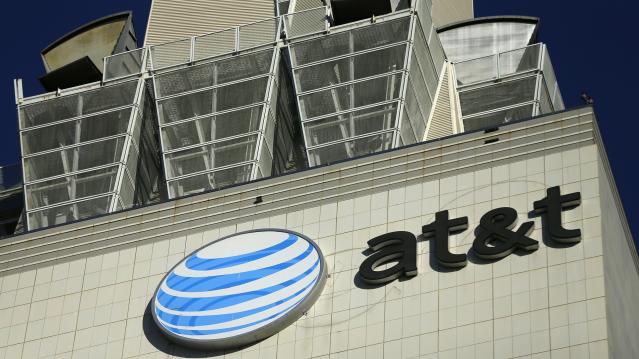FCC Slaps AT&T with $100 Million Fine for Throttling Internet Users

The FCC on Wednesday slapped AT&T hard, proposing a $100 million fine — the largest the agency has ever handed down — for what it described as the phone and broadband giant’s misleading customers about its “unlimited” data plans.
At issue is the practice of “throttling,” or limiting download and upload speeds for some users on those data plans.
Related: John Oliver Just Won the Net Neutrality Battle
AT&T’s throttling policy had been in place since 2011, according to an FCC statement, and it led to a barrage of complaints to the agency. AT&T targeted users who surpassed a certain data threshold over the course of a month, and consumer complaints argued that AT&T’s limiting of download speeds was directly at odds with the nature of the marketed “unlimited” plans.
AT&T, which is also pursuing government approval of its pending acquisition of DirecTV, says it will “vigorously dispute” the decision. In a statement, the company said that its practice is well documented and shared by many — if not all — service providers, and a legitimate method of managing their network’s resources. The FCC disagrees, claiming that AT&T violated transparency rules by falsely calling these plans unlimited.
"Broadband providers must be upfront and transparent about the services they provide,” said FCC Chair Tom Wheeler in a statement. “The FCC will not stand idly by while consumers are deceived by misleading marketing materials and insufficient disclosure."
Related: The Net Neutrality Debate Explained
AT&T has 30 days to respond before the FCC issues its final decision.
The Federal Trade Commission sued AT&T for $3.5 million in October last year, for the same alleged violation. That case is still ongoing.
Deficit Hits $738.6 Billion in First 8 Months of Fiscal Year

The U.S. budget deficit grew to $738.6 billion in the first eight months of the current fiscal year – an increase of $206 billion, or 38.8%, over the deficit recorded during the same period a year earlier. Bloomberg’s Sarah McGregor notes that the big increase occurred despite a jump in tariff revenues, which have nearly doubled to $44.9 billion so far this fiscal year. But that increase, which contributed to an overall increase in revenues of 2.3%, was not enough to make up for the reduced revenues from the Republican tax cuts and a 9.3% increase in government spending.
Tweet of the Day: Revenues or Spending?

Rep. Kevin Brady (R-TX), ranking member of the House Ways and Means Committee and one of the authors of the 2017 Republican tax overhaul, told The Washington Post’s Heather Long Tuesday that the budget deficit is driven by excess spending, not a shortfall in revenues in the wake of the tax cuts. The Wall Street Journal’s Kate Davidson provided some inconvenient facts for Brady’s claim in a tweet, pointing out that government revenues as a share of GDP have fallen significantly since 2015, while spending has remained more or less constant.
Chart of the Day: The Decline in IRS Audits

Reviewing the recent annual report on tax statistics from the IRS, Robert Weinberger of the Tax Policy Center says it “tells a story of shrinking staff, fewer audits, and less customer service.” The agency had 22% fewer personnel in 2018 than it did in 2010, and its enforcement budget has fallen by nearly $1 billion, Weinberger writes. One obvious effect of the budget cuts has been a sharp reduction in the number of audits the agency has performed annually, which you can see in the chart below.
Number of the Day: $102 Million

President Trump’s golf playing has cost taxpayers $102 million in extra travel and security expenses, according to an analysis by the left-leaning HuffPost news site.
“The $102 million total to date spent on Trump’s presidential golfing represents 255 times the annual presidential salary he volunteered not to take. It is more than three times the cost of special counsel Robert Mueller’s investigation that Trump continually complains about. It would fund for six years the Special Olympics program that Trump’s proposed budget had originally cut to save money,” HuffPost’s S.V. Date writes.
Date says the White House did not respond to HuffPost’s requests for comment.
Americans See Tax-Paying as a Duty

The IRS may not be conducting audits like it used to, but according to the agency’s Data Book for 2018, most Americans still believe it’s not acceptable to cheat on your taxes. About 67% of respondents to an IRS opinion survey “completely agree” that it’s a civic duty to pay “a fair share of taxes,” and another 26% “mostly agree,” bringing the total in agreement to over 90%. Accounting Today says that attitude has been pretty consistent over the last decade.



